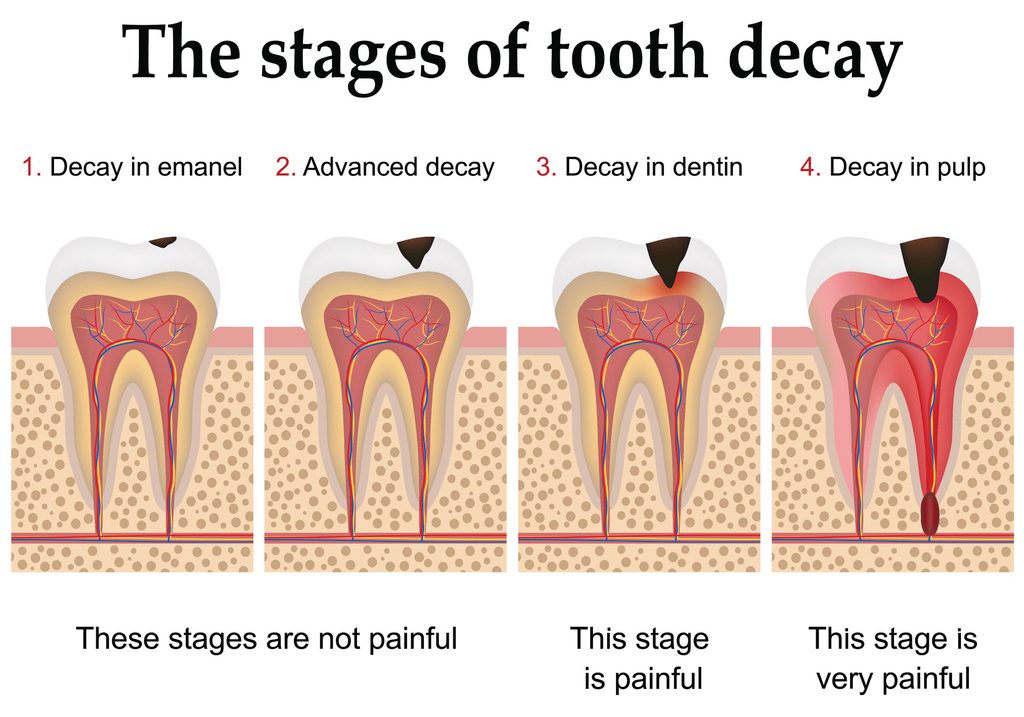It is commonly known as tooth decay or dental caries, is one of the most prevalent oral health issues affecting people of all ages worldwide. In this inclusive guide, we will delve into the intricate details of dental cavities, exploring its causes, risks, and effective prevention strategies. By gaining insights into the underlying factors contributing to dental cavities, individuals can take proactive steps to safeguard their oral health and maintain a cavity-free smile.
Understanding the Causes of Dental Cavity
Dental cavities are primarily caused by the interaction between bacteria, sugars, and acids in the mouth. When bacteria in the mouth feed on sugars from food and beverages, they produce acids that erode the enamel, the protective outer layer of the teeth. Over time, this erosion leads to the formation of cavities, or holes, in the teeth. Poor oral hygiene, frequent consumption of sugary or acidic foods and beverages, and inadequate fluoride exposure are common factors that contribute to the development of cavities.
Recognizing the Risks
Dental cavities pose various risks to oral health, ranging from minor discomfort to severe complications if left untreated. In the early stages, it may cause sensitivity or pain when consuming hot, cold, or sweet foods and beverages. As the cavity progresses, individuals may experience toothache, visible holes or pits in the teeth, and increased susceptibility to dental infections. If left untreated, dental cavity can lead to complications such as tooth abscess, gum disease, and even tooth loss, compromising both oral health and overall well-being.
Prevention Strategies
Preventing dental cavities involves adopting an inclusive approach to oral hygiene and lifestyle habits. Regular brushing with fluoride toothpaste, flossing daily, and using antimicrobial mouthwash can help remove plaque, bacteria, and food debris from the teeth and gums, reducing the risk of cavity formation. Additionally, limiting consumption of sugary and acidic foods and beverages, maintaining a balanced diet rich in fruits and vegetables, and drinking fluoridated water can promote enamel strength and remineralization, strengthening the teeth against cavity development. Routine dental visits for professional cleanings, examinations, and fluoride treatments are also essential for maintaining optimal oral health and preventing dental cavity.
Importance of Early Detection
Early detection and prompt treatment of dental cavities are crucial for preventing its progression and minimizing potential complications. Regular dental check-ups allow dentists to identify signs of cavity formation, such as tooth decay, discoloration, or visible pits, and intervene early to prevent further damage. Treatment options for dental cavities may include dental fillings to restore damaged teeth, dental sealants to protect vulnerable surfaces, or root canal therapy for advanced cases of decay. By addressing dental cavities in its early stages, individuals can preserve their natural teeth, alleviate discomfort, and maintain optimal oral health for years to come.
The Role of Fluoride
Fluoride plays a crucial role in preventing dental cavity by strengthening the enamel, the protective outer layer of the teeth, and promoting remineralization. Fluoride works to repair early stages of tooth decay by remineralizing areas of weakened enamel, making the teeth more resistant to acid erosion and cavity formation. Additionally, fluoride inhibits the growth of cavity-causing bacteria in the mouth, reducing the risk of plaque buildup and subsequent decay. Incorporating fluoride into daily oral hygiene routines through the use of fluoridated toothpaste, mouthwash, and drinking water can significantly enhance the effectiveness of cavity prevention efforts and contribute to long-term oral health.
Conclusion
In conclusion, dental cavity is a common oral health issue that can have significant implications for overall well-being if left untreated. By gaining insights into the causes, risks, and prevention strategies associated with dental cavities, individuals can take control of their oral health and reduce their risk of developing cavities. Practicing good oral hygiene habits, maintaining a healthy diet, and seeking regular dental care are essential steps for preventing dental cavities and preserving a healthy, beautiful smile. With proactive care and attention, individuals can minimize the impact of dental cavities and enjoy a lifetime of optimal oral health.





Comments